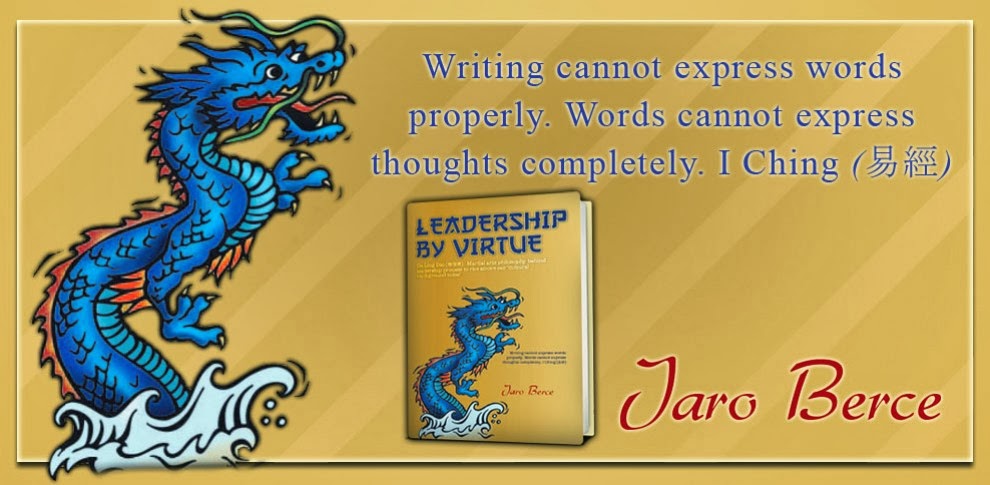 Dao De Jing is a transcript of around five thousand Chinese characters in eighty-one chapters or sections. The chapter divisions were during history in later editions reorganized and supplemented with commentary. The title of the Dao De Jing text comes from the opening words of its two sections: DAO represented in chapters 1 to 37 and DE from chapter 38 to 81.
Dao De Jing is a transcript of around five thousand Chinese characters in eighty-one chapters or sections. The chapter divisions were during history in later editions reorganized and supplemented with commentary. The title of the Dao De Jing text comes from the opening words of its two sections: DAO represented in chapters 1 to 37 and DE from chapter 38 to 81.To explain the title we can separate containing terms. The term Dao was explained in my blog “Dào (Dao, Tao) – the Way” and De in “De – Virtue –Dé”. The third word Jing is translated as ‘canon,’ ‘great,’ or ‘classic’ text.
 Thus, Dao De Jing can be translated as ‘The Classic/Canon of the Way/Path and the Power/Virtue.’ Even if this well-known text title did not become generally used until the Tang dynasty (618–905), it is fundamental to philosophical Daoism and it strongly influenced other old Chinese schools, such as Legalism and Neo-Confucianism. This ancient book is also central to Chinese religion, not only for religious Daoism, but also Chinese Buddhism which, when first introduced into China, was largely interpreted through the use of Daoist words and concepts.
Thus, Dao De Jing can be translated as ‘The Classic/Canon of the Way/Path and the Power/Virtue.’ Even if this well-known text title did not become generally used until the Tang dynasty (618–905), it is fundamental to philosophical Daoism and it strongly influenced other old Chinese schools, such as Legalism and Neo-Confucianism. This ancient book is also central to Chinese religion, not only for religious Daoism, but also Chinese Buddhism which, when first introduced into China, was largely interpreted through the use of Daoist words and concepts.




